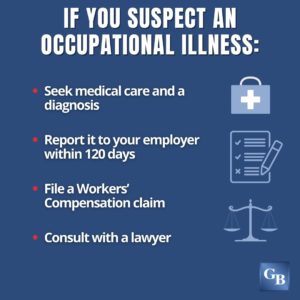What Does Workers’ Compensation Cover?
The Pennsylvania Workers’ Compensation Act is a no-fault insurance system of benefits designed to compensate injured workers for lost wages and medical expenses. It provides compensation for injuries and occupational diseases that occur during the course and scope of one’s employment.
The system does not replace all the wages lost by the injured worker, only a percentage. It also does not compensate for noneconomic damages, such as pain and suffering.
Pennsylvania Workers’ Compensation provides the following benefits.
Total Disability Benefits
Approximately two-thirds of the workers’ salary for total disability up to a maximum dollar amount provided by law is paid for the time lost from work if the disability lasts longer than seven calendar days.
If you are unable to work due to your injuries, you will be eligible for temporary total disability benefits. There is no time limitation for receiving temporary total disability benefits. However, after receiving temporary total disability benefits for 104 weeks, the insurer may require you to undergo an Impairment Rating Evaluation (IRE). After that exam, the insurance company will consider you partially disabled if you have less than 35 percent whole-body impairment. This does not change the amount of benefits that you receive, but will limit the duration of your benefits to 500 weeks.
Partial Disability Benefits
Partial disability benefits begin if you return to work earning less per week than your time-of-injury job. If your new position pays less than the job you were doing when you were injured, you will receive two-thirds of the pay difference based on the average weekly wage up to the maximum pay rate the year you were injured.
Your employer or the workers’ compensation insurance carrier may attempt to reduce your benefits to partial disability based on a Labor Market Survey. A Labor Market Survey is a method to determine your “earning capacity” based on your ability to perform work based on your age, work restrictions, education, and prior work experience.
Partial disability payments are payable for 500 weeks.
Specific Loss Benefits
If your injury resulted in the loss of a body part, loss of hearing or vision, or you suffered severe or permanent disfigurement to your neck, head, or face, you will be eligible for specific loss benefits. This benefit equals your total disability benefit and runs for a specific time.
Medical Expenses
Any medical expenses incurred as the result of your injury are covered, including:
- Services provided by doctors or other health care providers.
- Reasonable surgical and medical services needed.
- Hospital treatment, services, and supplies. Workers’ Compensation provides semi-private rooms or private room accommodations if no semi-private rooms are available.
- Prescription medicines and supplies.
- Orthopedic appliances and supplies.
The coverage also includes modifications needed to your vehicle to accommodate the injury. There are no time or other restrictions on payment for medical care for your injury.
Travel Expenses
If your treatment appointments take you out of the area where you work or live, you may qualify for travel expense reimbursement as part of your compensation. The insurer must also provide transportation to and from the location of your IME if you cannot get there on your own.
Death Benefits
If you die after a work injury, your heirs will be eligible for death benefits from your Workers’ Compensation coverage. Benefits are paid to your spouse until they remarry and your children under 18 years old unless they are enrolled full-time in an accredited school, in which case they will receive payment until they are 23 years old. Benefits include reimbursement of $7,000 in funeral expenses for deaths occurring after October 24, 2018 (If the death occurred prior to October 24, 2018, reimbursement will be $3,000).
 Google Screened
Google Screened


 What Should I Do if I Develop an Occupational Illness?
What Should I Do if I Develop an Occupational Illness?